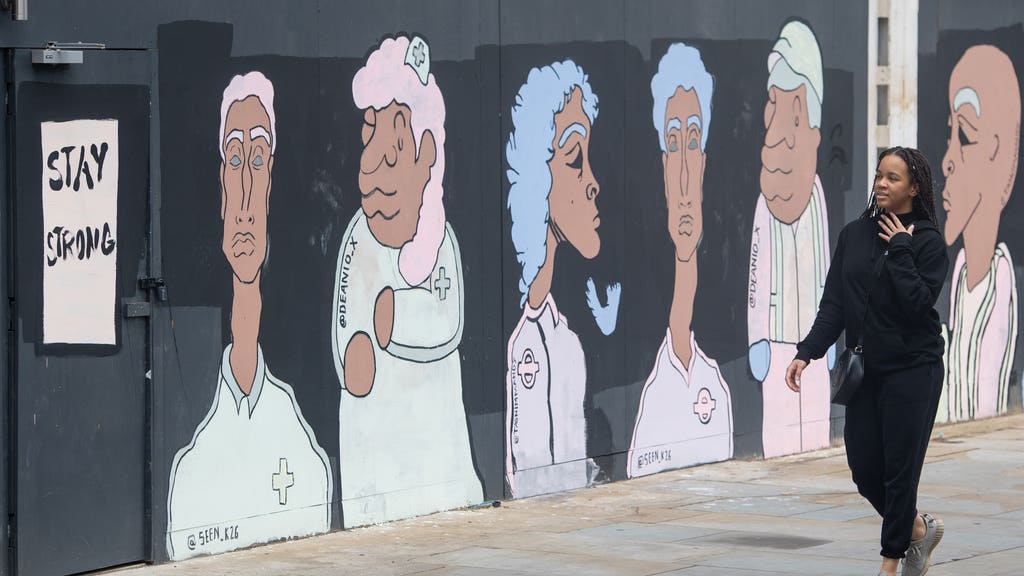ONS to publish suicide data by ethnicity from June as charities say ‘no excuse’ for gaps in data
Exclusive: The Office for National Statistics will finally begin analysing the ethnicity of death by suicide next month – but immigration status won’t be recorded

Suicide figures for ethnic minority groups are to be published in official figures for the first time from June – but charities say the data isn’t robust enough and lives are at stake because of a lack of information.
The Office for National Statistics will produce an analysis of mortality by ethnic group, including suicides, as part of a mandatory initiative in the wake of Covid-19 death disparities.
However, the June publication target could change and the breakdown will not include information on immigration status, The Independent has learned.
Last year, 4,902 suicides were recorded – a fall compared with 2019 – the ONS said on Monday.
However, the decrease, “most likely reflects delays to coroner inquests, because of the impact of the coronavirus pandemic, as opposed to a genuine decrease in suicide,” it adds.
Campaigners say suicide rates among Black, Asian and ethnic minorities are anecdotally higher and exacerbated by structural problems such as racism and that failure to identify groups puts lives at risk.
Asylum seekers, a vulnerable group with risk factors for suicide such as poverty and deprivation, are also hidden within overall data.
An ONS spokesperson said: “The information ONS holds on deaths is limited to what is recorded on the death certificate by a doctor or information about the cause and circumstances of the death provided by a coroner.
“Ethnicity is not captured in death certification; as such, the ONS have linked death registration records with another source containing information on ethnicity, the 2011 census.
“Disaggregation of mortality, including suicide, by ethnicity for deaths in England and Wales is planned for June 2021; this analysis is complex and any updates to the publication schedule will be communicated in our release calendar.”
If a person was excluded from the 2011 census due to reasons such as homelessness or having migrant status, their ethnicity will remain unrecorded – a problem disproportionately affecting non-white groups.

Juliet Cohen, from Freedom from Torture, says: “We welcome the ONS decision to record suicides by ethnicity. It’s a start but we’re still concerned about the limited use of sources which is excluding some ethnic minorities, as well as people seeking asylum.
“At a time when our data-rich lives are tracked and measured, from birth to death, there is no excuse for these gaps.
“Data is vital to us. Not only does it identify where help is needed the most, but it tells a story about the lives of marginalised or voiceless people who live among us. The UK spends millions on suicide prevention campaigns but so far, we have no idea how well it’s working if we’re not telling these stories.
“We only need to look at the government’s recent shambolic Sewell Report dismissing structural racism in Britain to realise that simply examining age and deprivation data is nowhere near sufficient in understanding inequalities.
“For years, we have been asking for two more boxes on the form – one for ethnicity and one for asylum status. It’s not a big ask – not if Black lives matter.”

Deborah Coles, director at charity Inquest, said: “It is intersection of these issues that is vital to societal understanding of how these are exacerbated by structural racism, the hostile environment and fear of coercive powers and mistrust of mental health services. It’s shocking that in the 21st century ONS data is currently failing to address this.”
Marcel Vige, head of equity at Mind, said: “We urgently need to see the government make good on its commitment to publish suicide data broken down by ethnic group.
“We would also like to be able to access data about the proportion of suicides by immigration status, including refugees and asylum seekers. Not all suicides are mental health related but the majority are and can be prevented with timely, appropriate support.
“Despite often being at higher risk of poor mental health due to trauma, people from different racialised communities – particularly vulnerable migrants who have come to the UK fleeing persecution – often face multiple barriers when it comes to being able to access and benefit from mental health services, including cultural and language barriers.”
In 2018, Marisa Mae Hibbert established Beautiful Trauma CIC, a social initiative, after her friend died by suicide following mental health concerns.
The 35-year-old Londoner said: “The absence of ethnicity and immigration status in suicide data means there is no picture of what triggers suicide rates within Black communities and shows a lack of awareness about how important this is.
“Every individual’s journey is different but it’s important to research what the shared experiences are among different groups, gender and sexuality to be able to give adequate support to prospective mental health service users.”
Statistics on mental health show an alarming disparity determined by race and immigration status.
Sixty-one per cent of asylum seekers experience mental distress and Black people are 40 per cent more likely to access treatment through a police or criminal justice route.
Eugene Ellis, director of the Black, African, Asian Therapy Network, says: “The impact of race on mental health needs to be highlighted as a significant contributor to the disproportionate health outcomes for Black people and other oppressed groups.
“Compiling suicide data by ethnicity and asylum status would go some way towards measuring the impact of race, and the effectiveness of race inequality strategies, in this crucial area of mental health.”
Judith Dennis, policy manager at the Refugee Council, says: “Knowing from our work with people seeking asylum of the harm the asylum process causes to people, compounding their suffering and in many cases re-traumatising people, it seems it would be worthwhile to collect further data to help us to collectively understand more about this issue and to inform the development of relevant policies.”
Join our commenting forum
Join thought-provoking conversations, follow other Independent readers and see their replies
Comments


Bookmark popover
Removed from bookmarks